When it comes to plug-and-play analytics tracking for your website, Google Analytics is the go-to solution. All it takes is a few minutes of setup and copying and pasting a few lines of code and you’re done—a wealth of analytics data will begin being tracked by Google, for free.
However, Google Analytics is not perfect. While it does offer valuable insights on the in-depth details of the users who visit your website, there are alternatives to Google Analytics that rarely get the attention they deserve because of how dominant Google Analytics is in this space.

In this article, let’s check out five free alternatives to Google Analytics that you’ve probably never heard of and go over the benefits of each.
Clicky
While Clicky isn’t the most comprehensive solution on this list, it definitely deserves its spot as a simple, entry-level analytics software.
The main draw to Clicky is its intuitive interface, which makes all of its reporting easy to digest. The homepage offers a glance at your visitors, actions, bounce rate, uptime, Twitter and search analytics, and more. There are many more views available on the Spy, Visitors, Content, Searches, Links, Platforms, Locale, Goals, Campaigns, and other pages.
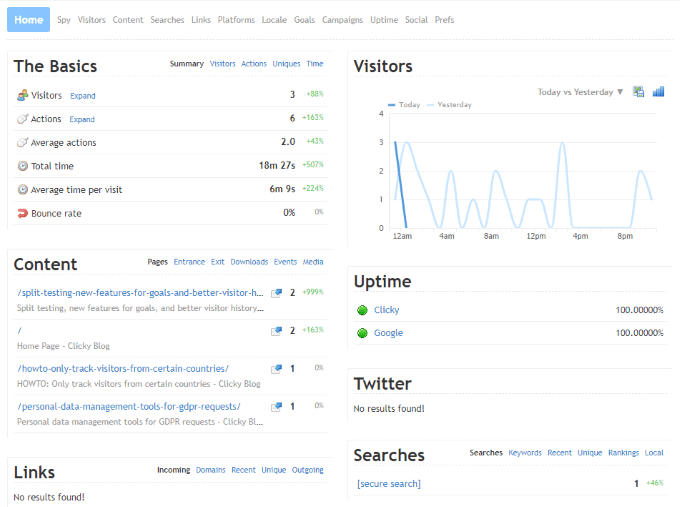
Clicky’s free version allows you to track a single website with up to 3,000 daily views, offering analytics such referrer data, content analytics, segmentation, iOS and Android analytics, and more. Real-time analytics and deeper features are reserved for the paid version.
Heap
Heap isn’t exactly like Google Analytics, but it’s kind of like the Google Analytics of product analytics. Heap’s selling point is that while Google Analytics was created when websites consisted mostly of static pages, Heap is more geared towards tracking analytics for buttons, features, CTAs, and user flows.
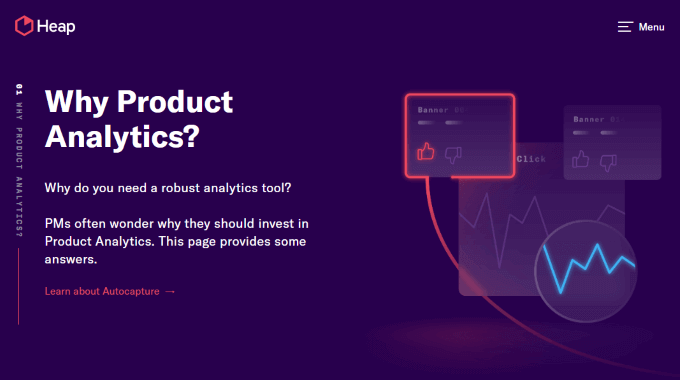
Heap’s free version offers up to 5,000 sessions per month, three months of data history, a single user license and project, and Silver-level support. All of their paid plans also include a 14-day free trial and unlimited virtual events.
Inspectlet
The idea behind Inspectlet is that it approaches analytics from the perspective of figuring out why visitors are doing what they’re doing instead of simply what they’re doing. While Google Analytics is great at telling you how long users stay on your website, what the bounce rate is, and more, Inspectlet looks to dive deeper.
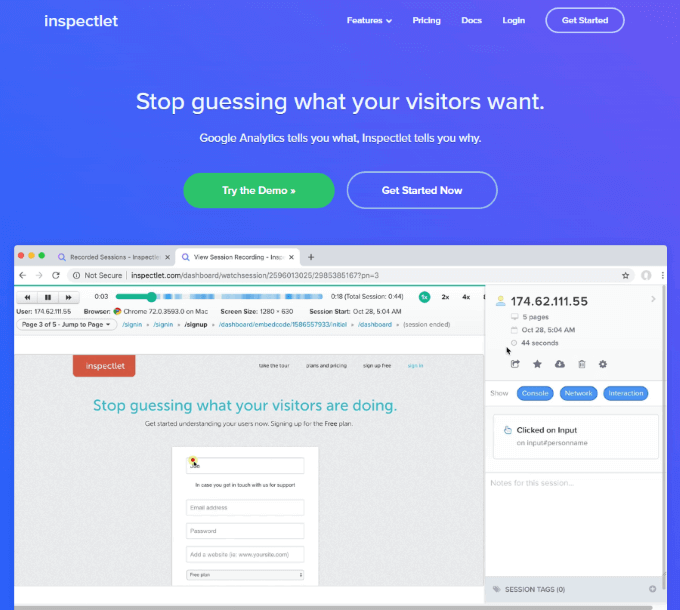
Inspectlet brings session recording, dynamic heatmaps, A/B testing, form analytics, error logging, and much more to the table. Its core functionality is recording visitor sessions to analyze all actions taken, specifically with the mouse. This can then be processed as a visitor session video, which can let you see exactly which parts of your website receive attention.
Inspectlet’s free version can record 1,000 sessions and A/B test visitors, and 10,000 page views per month. There is a max of one website and one month of storage, and the free version supports session playbacks, heatmaps, and mobile devices.
Leadfeeder
Like many other alternatives to Google Analytics on this list, Leadfeeder isn’t quite the same as Google Analytics, but it fulfills a very similar need. As one of the few and, in our opinion, easiest to operate web services of its kind, Leadfeeder allows users to monitor and analyze their website based on which companies have visited it.
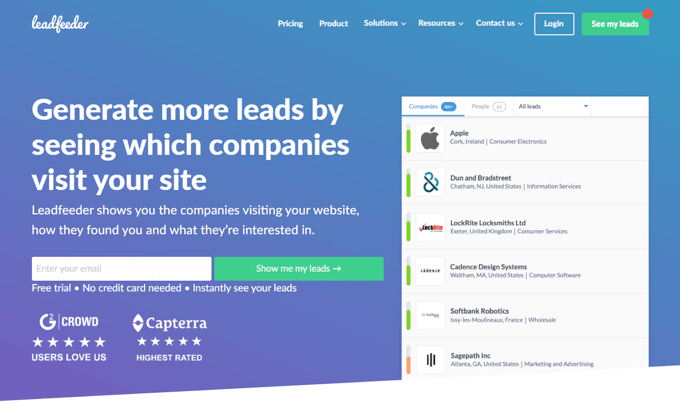
Leadfeeder can be configured to work with popular third-party integrations such as Pipedrive, Mailchimp, Salesforce, Google Data Studio, Zapier, and more. It will allow you to integrate your own marketing data and even offers its own proprietary CRM.
Leadfeeder works by monitoring your website based on the IP address of visitors, analyzing this data to determine when someone belonging to a relevant company performs a certain action. This is tracked internally and can even be set to trigger an email for certain companies.
The Lite version is free, offering the last seven days of data retention, unlimited users, company details, and a maximum of 100 recorded leads.
Woopra
Overall, Woopra is the most comprehensive alternative to Google Analytics on this list. Like Leadfeeder, it supports integrations with many third-party services—over 50—and offers a full suite of tools to track user experience across your site, including product, marketing, sales, and support.
Woopra specializes in touchpoint-based tracking analytics, notably for interactions with on-site elements such as live chat and behavioral tracking for when users click through to your website from an email.
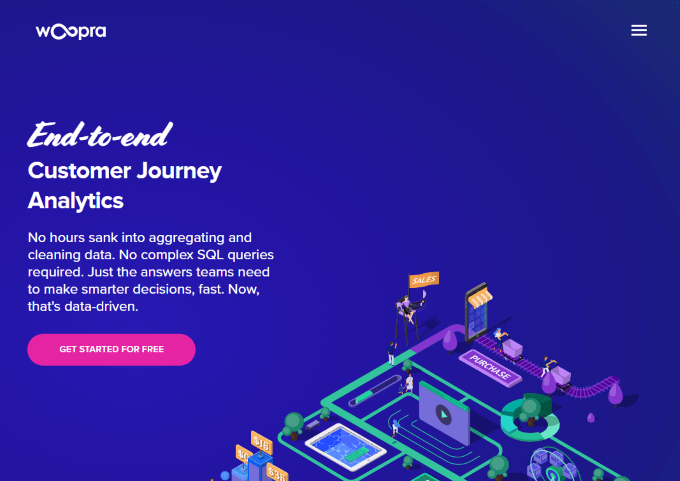
Woopra’s free version supports 500k actions, 90 days of data retention, all core analytics and reports, and 30+ of their one-click integrations with third-party services.
Even if you’ve been content with Google Analytics for years, it’s worth checking out some of these Google Analytics alternatives. You may find something you never knew existed that can better serve your website or fit a very niche need.
Have a question about any of the five services above, or maybe you’d like to share an alternative that we didn’t cover? Drop us a message in the comments below!
Related Posts
Craig is a long-time writer, coder, and marketer with years of experience in the technology and gaming spaces. Since 2008, he’s worked remotely with some of the most notable publications in these industries, specializing in Windows, PC hardware and software, automation, and the like. Read Craig’s Full Bio
